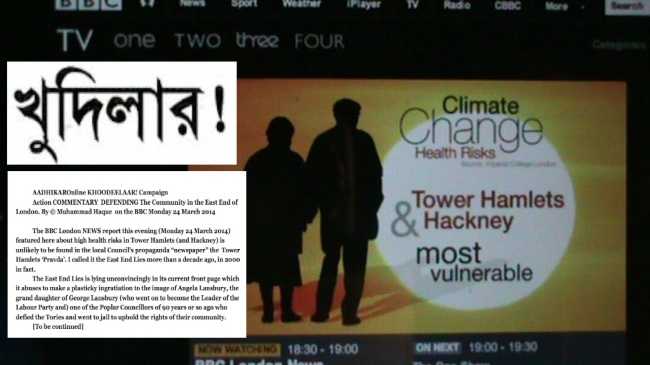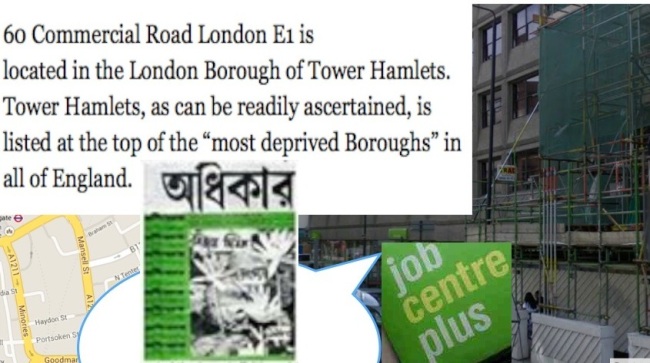'Evidence' suggests benefit fraud but injustice for disabled people is more apt
Benefits system is in danger of creating its own miscarriages of justice, says Edward Lawrence
Share
107
Comments (31)
Edward Lawrence
guardian.co.uk, Thursday 5 May 2011 10.00 BST
Article history
The Birmingham Six celebrate their release in 1991. Are changes to disability benefits a reminder of the miscarriages of justice of the 1970s? Photograph: Sean Dempsey/PA NEWS
Employment and support allowance (ESA) replaced incapacity benefit and income support for new claimants in October 2008, accompanied by a work capability assessment, a controversial computer-based test that judges a claimant's suitability to work. The assessment has been denounced in some quarters as finding disabled people fit for work, but for some others it has provided conclusive evidence of widespread fraud within the benefits system. Chris Grayling, the employment minister, is recorded as saying: "Once again, we have clear evidence of the need for change in our welfare system."
The Department for Work and Pensions (DWP) figures, which cover the period from 27 October 2008 to 31 August 2010, show that 887,300 of the 1,175,700 applicants for ESA failed to qualify for any assistance. Of those, 458,500 (39%) were judged fit to work, while 428,800 (36%) ditched their claim. A further 16% were placed in the "work-related activity group", in which individuals are deemed able to take on some level of work but still receive a level of ESA support. Over a third (36%) of people who made a claim for ESA between October 2008 and February 2010 and who were found to fit to work at assessment have appealed, with the original decision overturned in almost four in 10 cases (39%).
This appeal process, in which four out of 10 appeals are successful, should ring alarm bells with the government, as it seeks to criminalise disabled people who are claiming their legal entitlement.
Because, just like the bad old days of the miscarriages of justice in the 1970s (the Guildford Four, the Maguire Seven and the Birmingham Six come to mind), so the benefits system is in danger of creating its own miscarriages of justice. The new workplace capability assessment will find disabled people fit to work when they are manifestly unable to do so. It will penalise them financially and so curtail their independence.
I am not suggesting that the treatment meted out to innocent victims of miscarriages of justice is in any way comparable to this government's treatment of disabled people, but there are similarities.
First, there is the overlooking of evidence that doesn't support the official view, and consequently making the evidence fit the charge, rather than the charge fitting the evidence. Then, there is the issue of judgments, which deny rights and are held up to be lawful, but which are subsequently overturned on successful appeal, in a campaign led by dedicated believers in the face of official pronouncements that the original verdicts were safe.
The new medical assessment is part of the popular view (denied by officials) that tests and examinations are getting easier – think of the hysteria surrounding declining standards because of apparently easier A-levels. So, if too many people are passing the test, and the capabilities of the people taking the tests have not changed, then redesign the test. Make it harder to pass!
And there it is: Grayling's "clear evidence of the need for change in our welfare system". But evidence can be fabricated.
larger | smaller
Society
Disability · Learning disability
Politics
Welfare
Money
State benefits
Series
Diary of a disability benefit claimant
More from Diary of a disability benefit claimant on
Society
Disability · Learning disability
Politics
Welfare
Money
State benefits
More blogposts
See also
5 May 2011
Turner prize shortlist: Is it George Shaw's moment?
3 May 2011
US trawls al-Qaida 'treasure trove' of seized hard drives
4 May 2011
AV timetable slip notches up another gaffe for John Humphrys
29 Apr 2011
Activists claim purge of Facebook pages
Printable version Send to a friend Share Clip Contact us Article history
Ads by Google
Volunteer Abroad
Change the lives of others Worldwide placements available now!
OriginalVolunteers.co.uk
Spread Betting - Try Now
Try GFTs Award-Winning Trading Platform. Free Practice Account.
www.GFTuk.com
London Coupons
1 ridiculously huge coupon a day. Get 50-90% Off London's best!
www.GROUPON.co.uk/London
Comments in chronological order (Total 31 comments)
Staff
Contributor
pjlythgoe
5 May 2011 10:10AM
The whole thing is an absolute disgrace and a shameful indictment of our society.
Recommend? (54)
Report abuse
| Link
Ranald
5 May 2011 10:16AM
To qualify for ESA the claimant has to wait a 13 week "assessment phase" before qualifying, why is it so hard to understand that many will recover (broken leg, flu etc) before that time?
I have a progressive and incurable physical disability but not every case is as cut and dried as mine, there are a great many who slip through the cracks due to a completely unsuitable medical, that doesn't take their particular problems into account.
How can it be right to disregard the claimant's own GP and Specialist doctors but fully accept the result of a brief tick-test, which may or may not be relevant to their individual case. (mental illnesses, rare diseases).
The system might have needed reform but this isn't it.
Recommend? (84)
Report abuse
| Link
EvilMcBad
5 May 2011 10:30AM
This is a very sad indictment on a supposedly civilised society - I hope the Tories and their yellow friends get a bloody good kicking for this kind of wickedness today.
Recommend? (58)
Report abuse
| Link
jimmyroy
5 May 2011 10:38AM
And lets not forget it was the Tory government of the eighties that encouraged jobcentres to advise unemployed people to go to their doctors and ask to be classed as incapable of work, and so claim for disability allowance. All this to keep unemployment figures down which were spiralling out of control. So after thirty years of successive governments complacency, the big stick has to come down on everybody, including the very people it is meant to protect. But then, we are all in this together are'nt we.SCANDALOUS.
Recommend? (37)
Report abuse
| Link
PaulTno1
5 May 2011 10:47AM
A couple of points which I think are lost slightly in this piece.
First, the official statistics used refer only to first tier decision making. Something like 35% of those people refused lodge appeals and about 39% of those appeals are successful, indicating a pretty poor standard of first tier decision making. In any other judicial arena, such a rate of over-turned decisions would lead to urgent changes to the decision making structure, not used as a stick to beat those who "fail" the test.
Second, there will be a number of people who "fail" the test who don't appeal, because they are not told that they can, because they are told that they must claim JSA instead, and because there is a diminshing amount of welfare rights advice available to assist people through the appeals process. So the actual level of poor decision making at the first tier is likely to be even higher than referred to above.
Third, a significant number of those people who give up on their claims prior to the assessment will do so because they have short-term medical conditions, not because they have cheated the system. ESA is set up such that the medical assessment does not take place until at least the 13th week of the claim, and is often later (due to DWP/ATOS inefficiency). To use these figures in the way that DWP and government have is quite misleading and is further evidence of their quite cynical manipulation of data.
Recommend? (68)
Report abuse
| Link
hacklesup
5 May 2011 11:31AM
These figures have Cameron written all over them
Dishonesty
While it is perfectly proper for an attempt to be made to cut down on actual benefit fraud and while it is perfectly laudable that some disabled people who can be helped ,should be helped to get at least a little work to help with their overall quality of life ,we have heard what happens in these so called assessments . They are a disgrace .
and the appeals are often upheld which indicates that the 'client ' should not have had to go through such a worrying and humiliating procedure .
The government has clearly massaged the figures as shown above ...they do not tell the whole story
It is disinformation
It is a Cameron thing .
.
Recommend? (31)
Report abuse
| Link
budugs
5 May 2011 11:43AM
I listened to evidence give to the "dwp select commitee" which can be found on "house of commons web site".
I was disgusted at the evidence presented to the committee which shows how guenuinly sick and disabled people are being treated within this system, the evidence given on specfic cases was "tantamount to cruelty perpertrated by the state".
I urge all those who beleive this new system is about catch out scroungers to listen to the meeting, of the above mentioned select committee and challenge you not to be touched by the unfairness of treatment being meatered out by the state to sick and disabled people
Recommend? (33)
Report abuse
| Link
Ranald
5 May 2011 11:47AM
It is important to note however, that it was Labour who brought in the new ESA, the "Islington, Champage Socialists".
I don't believe any one political party can take the moral high ground, i am still not sure who i shall be voting for today! I will vote SNP in the Scottish Election but only out of habit, as for AV and the Westminster crowd, i am at a loss. ;-)
Recommend? (31)
Report abuse
| Link
jollylips
5 May 2011 11:48AM
It beggars belief why this system has been rolled out nationally, when there are so many problems with it. Some of Harrington's recommendations have apparently been implemented, yet some of the descriptors have been changed/omitted which sets the majority up to "fail" anyway.
Anecdotal evidence shows many sick/disabled claimants are treated appallingly by Atos employees and considering the undue stress claimants are experiencing by having to undergo the assessment in the first place, well, it's just disgraceful.
CAB, mental health charities, Professor Gregg, to name but a few, are all calling out for the problems to be addressed asap but it's falling on deaf ears. And the reporting by some parts of the media is utterly disgraceful and the DWP and government ministers are responsible for this.
This whole system is set to fail and tragically, already vulnerable people will suffer further.
If they insist on going ahead with this (ok they already have), they should postpone the process now, ensure all recommendations are put in place to make it a fair and valid assessment, then roll it out. If after that, they need to tweak it in order to improve it more, then fine. But to go ahead with it when there are still so many problems is ludicrous.
Better still, scrap it completely and start again !
Recommend? (40)
Report abuse
| Link
parrotkeeper
5 May 2011 12:13PM
Interesting research report I found on DWP website which, perhaps tellingly, carries the following statement:
" Views expressed in this report are not necessarily those of the Department for Work and Pensions or any other Government Department."
Characteristics of those claiming Employment and Support Allowance
Compared to the general population, people claiming ESA are
• disproportionately male – almost two-thirds (65 per cent) of those claiming are men;
• older (with an average age of 43);
• more likely to live in social housing – 35 per cent are owner-occupiers, compared with 68 per cent for the UK as a whole; and
• more likely to be single or a lone parent.
(Hardly the picture painted by many. They must be so disappointed!)
The majority (71 per cent) of people said they were claiming a sickness benefit for the first time, and half (51 per cent) had been working immediately before their claim. However, over two-thirds (69 per cent) said they had multiple health problems and a considerable proportion also had characteristics that may disadvantage them in the labour market, with over a third (36 per cent)
having no qualifications and more than one in five (22 per cent) being in a group recognised as facing severe employment disadvantage.3
There appear to be broad similarities in the demographic and economic profiles of the different ESA claim groups (the WRAG, SG, and FFW Group), but compared to the UK population as a whole, ESA claimants are an economically disadvantaged group.
Destinations of those whose claim had ended
The FFW Group
Only a relatively small proportion (13 per cent) of those who had been found FFW were back in employment by the time of the survey, and a sizeable proportion of claimants still identified themselves as being sick; 22 per cent reported that they were permanently off work due to sickness.
A further 28 per cent of those found FFW were unemployed and looking for work. It is likely that most of this last group were claiming Jobseeker’s Allowance (JSA), as a separate question shows that 26 per cent were claiming JSA.
Being found FFW appeared to have little bearing on an individual’s own understanding of their health condition and its impact on their ability to work. When asked about barriers to work, a large proportion of the FFW Group, 46 per cent, identified their health as a main barrier, far higher than the next most cited barriers – lack of suitable jobs locally (12 per cent) and low confidence
(11 per cent).
The claim closed and claim withdrawn group
This group is comprised of people whose ESA claim ended before they received a decision on their claim. Some people withdraw their claims, while claims may also be closed by Jobcentre Plus if customers do not respond to letters, or requests to attend a face-to-face WCA.
A significant proportion of this group had returned to work by their time of the survey – 41 per cent, over three times the rate for those in the FFW group. This suggests that spontaneous recovery was a key driver of ended claims. A further 30 per cent were unemployed at the time of the survey.
A much smaller number of this group identified themselves as being sick, and very few (three per cent) reported being permanently off work due to sickness. A sizeable minority of the claim withdrawn or closed group reported having no barriers to work. Perhaps surprisingly, given the small number who identified themselves as being sick, 27 per cent reported that they still had a health
barrier to work.
Appeals
Overall, 41 per cent of WRAG/FFW customers in the survey had appealed. Appealing was more common amongst:
• people who had claimed Incapacity Benefit (IB)/sickness benefit before (57 per cent, compared with 37 per cent for those making a first claim);
• those found FFW25 (60 per cent of the FFW group appealed, compared to 12 per cent of WRAG).
Those with physical health conditions (43 per cent) and mental health conditions (44 per cent) were equally likely to appeal.
Most (79 per cent) of those who had appealed were still awaiting the outcome.
http://research.dwp.gov.uk/asd/asd5/rports2009-2010/rrep707.pdf
-----------------------------------------------------------------------------------------------------------
I would really like an investigation into the work of ATOS. They get paid millions to "assess" people & find them fit for work. 40% of appeals upheld clearly shows the method used is flawed.
They then get paid millions again to find them work through their A4E arm.
Too cosy? You bet your life it is!!
Recommend? (31)
Report abuse
| Link
TheHillTop
5 May 2011 12:42PM
What is the point of those reform changes?????
Is it a mass fraud investigation?
Is it a cost cutting excersice?
Is it a maraculous cure for ones illness?
Is it to improve peoples lives?
Is it just a meerly school ground bullying tactics?
It certainly isn't an aid to helping people back into work, but meerly push people further under ground.
If a sensibal government lisens to the people they would realise that disabled people had been asking for the rights of the dignity of work for many years. If they anounced in there reforms that they would bring about a garantee of employment with adaptions being made in place throughout towards each individuals illness. Then the reform would probably take on a different character and would have been welcomed by all. As it stands life's are being lost hardships are being known throughout. Which can only suggest this is purely a cost cutting excercise which will undoubtably bring costs towards the tax payers in the meduim term.
I personally have returned to hospital as a direct acount of those reforms. In the process at present a return to full tax payer funded support. This has come about due to the anxiety over those assessments. The support services have now seen whats in my food cupboards, they have seen the state of my clothing. This is after going over a year with no monies due to failure to attend those assessments. During this past year I've even had to make the chose between a bar of soap or a tin of food.
Prior to all this my immediate neighbours after much understanding on their part aided myself on helping with taking me shopping and numerous other things that kept myself living as independant as I could within the community. This was no cost towards tax payer or NHS.
As things stand presently, and due to my withdrawal of neighbour support due to lack of monies and the stress of those assessments. I've got to rely on the help from a total stranger (tax payer funded support) and the intimadation of support on carrying out my shopping and other needs that bring independance of living within the community. During this period of deteration towards my health as a direct result of those assessments and reforms. A referral has also been made towards further treatments from specialist doctors. Another tax payer funded body.
I am only one individual how many more of the "428,800 (36%) ditched their claim" will be returning to their original rights of claim going through the process in which I have had to endure?
I payed years of taxes whilst in work. A work place accident progressed my illness which left myself in this situation.
Recommend? (28)
Report abuse
| Link
maple5
5 May 2011 1:48PM
ATOS should be made to pay for the cost of all the appeals, not the taxpayer. They would soon change their tick box exercise and stop declaring the severley or teminally ill fit for work, to get their bonuses.
This test must be stopped immediately and a proper medical brought in which takes evidence from patient's Gps and Consultants.
Why the need to rush ahead with testing 10,000 poeple a week when everyone says it is not fit for purpose.Why not let Professor Harrington finish his review and implement the changes he has already recommended.
The government should be more than ashamed especial Grayling for misrepresenting the statistics in the way they have as propaganda. And the public should wake up to the fact that they are being manipulated.
Thanks to this, attacks on disabled people have increased dramatically with everyone being declared a faker by their own neighbours. This is no longer a civilised country when the sick and disabled are blamed for an economic crisis caused by bankers.
Tax evasion by corporations and the wealthy will net 125 billion. Welfare reform 81 billion. Why is there no hotline to shop a tax avoider?
Recommend? (28)
Report abuse
| Link
billkruse
5 May 2011 1:53PM
This comment was removed by a moderator because it didn't abide by our community standards. Replies may also be deleted. For more detail see our FAQs.
wishface
5 May 2011 3:22PM
Why are we still having this debate? The evidence is clear! HOw many times have we got to be saying this before we will be heard by that scumbag Grayling and his master IDS? Stop Treating us like shit!
I'm so sick of this government. So very fucking sick.
Recommend? (30)
Report abuse
| Link
wishface
5 May 2011 3:31PM
The top floor of my local Jobcentre office building is given over entirely to ATOS. Cushy.
Recommend? (21)
Report abuse
| Link
klang
5 May 2011 4:01PM
The DWP have behaved disgracefully; releasing dodgy stats to dodgy newspapers, purely to get their way.
A terrible way to govern a country.
Recommend? (24)
Report abuse
| Link
hilltop
5 May 2011 4:23PM
The 'Fit to Work' argument is only one side of the issue. It is the 'supply' side.
The 'demand' side is largely overlooked. The failure of very many organisations to employ a job applicant with a disability means that there are no jobs for those affected by disability. The legislation requiring employers to make reasonable adjustments for disabled job applicants is ignored and unenforcable.
Large parts of the public sector, notably the NHS, are very poor employers in this regard.
The new Employment Support scheme will pay upto £14,000 for each person placed in work.
It would have been more sensible to enforce the legislation.
Recommend? (20)
Report abuse
| Link
jollylips
5 May 2011 4:33PM
The government can claim all they like that welfare reform is about reducing fraud and helping long term claimants back in to work, but we all know it's total bollocks. Not only have we to endure this whole shitty process, but we've also got to fight against the ignorant of society who either don't care or are totally oblivious to what's really happening, all because of this fucking wank of a government and their lick arse mates in the media.
Fraud is minimal and the welfare to work program hasn't exactly got a great track record, but Grayling, IDS and the rest of them continue to spout shit to justify treating disabled people like crap.
My emotions are turning to anger now, not good for somebody with mental health problems and certainly not good for anybody else around me, is this what they call helping people???
Recommend? (31)
Report abuse
| Link
Nemain
5 May 2011 6:48PM
Could I mention that ATOS an Excel PDF listing all Assessment Centres locations along with access information to the building and the facilities within, which can be downloaded from the Atos website.
My local Atos Assessment Centre Is located in a business a park, at a dead end, dirt track. They could not have chosen a more remote or inaccessible site to locate the building.
The Excel PDF data base states there is no parking on the 2nd floor although a lift is provided, no bus or train station nearby, no wheelchair access, no chairs with arms and refreshment provided via a water cooler.
Anyone with mobility problems will have an monumental task to reach this location! Lets not forget your constantly monitored by the CCTV cameras along the route to the building and leaving. CCTV cameras also monitor you in the building and lift.
The chairs have no arms rest they can monitor you sitting and getting up from a chair. The use of the water cooler will also be monitored as are the route to the toilets.
Once again.
They could not have chosen a more remote or inaccessible site to locate the building.
I was thinking of writing to my conservative MP about the unsuitability of the site and the lack of facilities for people with mobility problems especially wheelchair users.
But then I’m wary of this option.
Recommend? (12)
Report abuse
| Link
Nemain
5 May 2011 6:55PM
The Excel PDF data base states there is no parking on the 2nd floor although a lift is provided
Sorry tired
Atos is located on the 2nd floor a lift is provided
No parking facilities outside
Recommend? (0)
Report abuse
| Link
Nemain
5 May 2011 9:40PM
http://www.atoshealthcare.com/UserFiles/File/fact-sheets/2011/Assessment%20Centre%20Location%20List.xls
Details published on the Atos website reveals that more than 20% of its 141 medical assessment centres, used primarily for employment and support allowance medicals, do not have wheelchair access.
In addition, out of all 141 Atos centres, only around 50 have dedicated parking on site and just one centre –Wrexham – is listed as having disabled parking. And even then it’s only one single space. Other centres rely on public car parks, which may be five or ten minutes walk away.
31 of Atos’ medical examination centres are not even on the ground floor, with Chesterfield actually perched on the 5th floor.
16 centres have no chairs with arms, vital where claimants have problems with rising from sitting. Others are listed as having just a single chair with arms.
Twenty seven centres do not even supply drinking water for claimants, who may be kept waiting a very long time for their assessment.
Very worryingly, in spite of the many thousands of claimants with continence problems, no details of whether the centres have toilets – let alone disabled toilets – are given.
In a leaflet made available to claimants Atos ask themselves the following question:
“Why are some assessment centres above ground level when Atos Healthcare
has a policy not to examine people if they are unable to evacuate the building
using stairs?
“The DWP considers all assessment centres before approving them for use by Atos Healthcare.
Should an assessment centre not be on a ground floor, and a customer is unable to the stairs [sic]
in the event of an emergency (as this is a health & safety regulation of Trillium’s), Atos
Healthcare will look at an alternative venue or a home visit. The DWP considers all
assessment centres to be appropriate for purpose and DDA compliant.”
Atos has a contract with the DWP which is now worth far in excess of the half a billion pounds they were awarded back in 2005. They clearly have the money to provide high standard facilities.
That some centres have no suitable chairs for people with problems rising from sitting, that most have no listed disabled parking facilities and that one in five are not accessible to wheelchairs is astonishing. That the DWP “considers all assessment centres to be appropriate for purpose” is beyond astonishing – it is a national disgrace and clear evidence of the contempt which increasingly characterises the DWP’s dealings with sick and disabled claimants.
Recommend? (25)
Report abuse
| Link
toasterman
5 May 2011 10:22PM
I claimed ESA for a short period in 2009, and so felt I'd give my thoughts here regarding ATOS and the procedure.
The ATOS form an ESA claimant has to fill out is nearly 40 pages long, and almost all of it is related to physical illnesses and disabilities.
What immediately struck me was that there is almost nothing in here about mental problems (stress based illnesses, or depression, for example).
The 2-3 pages at the back, which seemed to wander into mental territory, ask questions like if I can remember to get dressed in the morning. I don't have dementia.
I was actually panic-stricken with regards even filling out the form, as I was convinced they'd think I was faking (even though my doctor had told me I was suffering from depression, not the other way around).
I filled it out, returned it, and got invited to the ATOS assessment.
I had assumed this might be at a hospital, or a doctor's surgery, but as earlier commenters have said, it was a grotty industrial estate miles from anywhere, quite a long way from any bus stop. Although I wasn't suffering from a physical problem, it would have possibly been a struggle to get to, if I was.
My appointment was at 1pm, and I was advised to turn up 10-15mins early, which I did. I was seated in a freezing cold waiting room, next to two automatic doors which hadn't been oiled in years, which squeaked irritatingly whenever anyone (not just people regarding assessments) left or entered the building. They entered or exited roughly every couple of minutes.
One of the other people in the waiting room shouted racist and homophobic views (not at me, just in general) from the time I arrived, to the time I was eventually seen at nearly 2.30.
Yes - 1.5 hours later than the appointment time they'd given me. No apology or explanation was given.
During the assessment, the nurse conducting it typed continuously on her keyboard, as if making notes on everything I said. She asked me a lot of questions I'd already answered.
She told me this would be written up and sent to me, and it was - in two parts. The first part was an incredibly vague document that ranked me with a score figure. It says you have to get 15 points to be eligible, but doesn't tell you how they arrive at the figures really, or what their measurement system is. It categorises various things, but doesn't say how many for each category.
I'll give you an example. Can you "walk on level ground without difficulty"? - if yes, no points there. Assuming I couldn't walk, do I get 1 point? 10 points? Presumably they know what the scoring system is, but they're not going to tell anyone else.
Given that only 10 of the sections are non-physical, I'd estimate it's pretty hard to get 15 points, if suffering from a mental condition.
Under one section, they wrote "you have no problems meeting and mixing with new people". Or existing friends. In fact, from reading this document, you would assume I had no fears or weaknesses at all and was somewhat of a social butterfly.
In the detailed version of the nurse's assessment though, they wrote:
"In the future, the client states that they would like to chat on the telephone with their friends. The client finds this difficult at present".
The only people I had felt able to speak to in weeks, was my doctor, and the counselor that my doctor referred me to.
The nurse's summary said "A phased return to work should be considered" and "within 6 months".
Within 6 months.
How long before my ESA benefit stopped? A week.
Recommend? (14)
Report abuse
| Link
BettysBlues
6 May 2011 10:17AM
That's terrible Toasterman.
Even where there are mental health questions, mental illness seems to be treated as if it's the same as a learning disability, and there seems to be no recognition of the fluctuations of conditions that are emotional in basis. A person with mental illness can be very bright, but this would lose a person points, as they are supposed to act as if they were learning disabled (the pc term) when the two can be very different.
I like so many others, have needed emergency treatment due to my fears over this business, and am now on three different medications.
Recommend? (9)
Report abuse
| Link
felix2010
6 May 2011 10:55AM
This comment was removed by a moderator because it didn't abide by our community standards. Replies may also be deleted. For more detail see our FAQs.
wishface
6 May 2011 1:22PM
Hey people, how did you like your Programmed Democratic Distraction? Fun was it?
It's good to have something to take your minds off the total loss of power that we the ordinary and the poor have experienced.
Recommend? (1)
Report abuse
| Link
Nemain
6 May 2011 2:12PM
toasterman@
The ATOS form an ESA claimant has to fill out is nearly 40 pages long, and almost all of it is related to physical illnesses and disabilities.
What immediately struck me was that there is almost nothing in here about mental problems (stress based illnesses, or depression, for example).
In reply:
The system that is in place for the The Work Capability Assessment (WCA) is enough to drive the sanest person mad.
The Work Capability Assessment (WCA) that is being undertaken by Atos on behalf of this government is grossly unfair, criminal?
Although my health problems were mostly physical, Cerebral Palsy.
My mental health is being negatively effected. I’m starting to believe that I’m a benefit scrounger, the drip drip effect of the governments brainwashing campaign is working on me.
I’m becoming more aggressive and isolating myself, because of my aggressive outbursts.
I’m scare to death, that I might unintentionally hurt someone, I keep on thinking that I will end up in prison.
Recommend? (9)
Report abuse
| Link
Nemain
6 May 2011 2:13PM
scared
Recommend? (1)
Report abuse
| Link
TheHillTop
6 May 2011 6:07PM
Nemain@
I know those aggressive feelings well.
I actually went to attend the assessment got as far as the door and couldn't go in as I recognised that the spontanous acts were vulnerable at that time. If I went into that assessment there were the high chance that I would of wrecked there computers and probably ended up with a criminal record. It's the same feelings that bring about suicidal thoughts but mostly lead back to self harm to try and over come them. Constant nightmare once those thoughts come about as there's no getting rid of them except ride the tide sort of speak. No matter what one try's to do the fixation is to great to fight. This deepens the depression levels as well to the point of being virtually paralysed.
The isolation process can go on for a day or it can go on for months at a time. Being pushed into the situation of an assessment when one already finds difficulty in going to the GP it just doesn't work.
At the end of the day and as stat's show the aggression is taken out on either one's own property or through self harm such as turning to a period of excessive drinking, and as you mentioned above isolation which is the route I mostly take. The aggression is never ever taken out towards another being even though the thoughts are there at times. Burn out is more than likely prior to any action due to the awareness.
Recommend? (5)
Report abuse
| Link
Nemain
6 May 2011 7:12PM
My levels of anxiety will crescendo with the arrival of my Work Capability Assessment (WCA) at my remote and inaccessible Atos Assessment Centre.
If you turn up, you’re obviously fit for work. Don’t turn up and you get your benefits removed.
I will be asking for a medical at home, using the two points below:
(1) The DWP considers all assessment centres before approving them for use by Atos Healthcare.
(2) Should an assessment centre not be on a ground floor, and a customer is unable to the stairs [sic] in the event of an emergency (as this is a health & safety regulation of Trillium’s), Atos Healthcare will look at an alternative venue or a home visit.
I believe the system being used by Atos is specifically designed to drive people mad, with the blessing of the DWP as per
(1) The DWP considers all assessment centres before approving them for use by Atos Healthcare.
Recommend? (3)
Report abuse
| Link
naturalcynic
7 May 2011 12:42AM
I applied for DLA last summer after being diagnosed with severe depression. After filling in countless forms, which felt like a job application with the questions that were asked, DWP said they would contact my GP. After numerous delays, it was decided that I'm not disabled, despite the effects my condition has on my everyday life. Yet my university has classed me as disabled.
Since being rejected for DLA, I have had further diagnoses with regard to my mental health, and while my university is offering round-the-clock support, I can't see the same happening with the DWP.
Most people applying for benefits aren't 'scroungers' wanting to cheat the State - they are desperate, poor and often ignored by society at large, and need help to get by.
Recommend? (3)
Report abuse
| Link
TheHillTop
8 May 2011 9:47AM
naturalcynic
Having depression is not an automatic entitlelment to DLA regardless of how severe it is. DLA is one of the more difficult benifits to obtain as the criteria for claiming that benifit is very high and is only given in extreme circumstances.
In most cases esspecially with Mental Health it's the proffesional bodies that fill in that form as the illness of the individual is that of extreme severity. This is what makes it rediculas for Government to try change that system.
Recommend? (1)
Report abuse
| Link
Comments on this page are now closed.















































 FURY: Cllr Anwar Khan accused his white Labour colleagues of halting the ambitions of Bengalis [TOWER HAMLETS]
FURY: Cllr Anwar Khan accused his white Labour colleagues of halting the ambitions of Bengalis [TOWER HAMLETS] FARCE: Labour's group leader in Tower Hamlets, Sirajul Islam, was mocked as Danny de Vito lookalike [TOWER HAMLETS]
FARCE: Labour's group leader in Tower Hamlets, Sirajul Islam, was mocked as Danny de Vito lookalike [TOWER HAMLETS] Independent councillor Alibor Choudhury 'joked' Labour were like Oswald Mosley's Blackshirts [TOWER HAMLETS]
Independent councillor Alibor Choudhury 'joked' Labour were like Oswald Mosley's Blackshirts [TOWER HAMLETS] Veteran Labour councillor was visibly shocked by the behaviour and accusations [TOWER HAMLETS]
Veteran Labour councillor was visibly shocked by the behaviour and accusations [TOWER HAMLETS]









 TV: Mayor Lutfur Rahman, right, being interviewed on Channel S by Mohammed Ferdhaus, left [YOUTUBE]
TV: Mayor Lutfur Rahman, right, being interviewed on Channel S by Mohammed Ferdhaus, left [YOUTUBE] CONTROVERSIAL: Tower Hamlets mayor Lutfur Rahman was expelled from the Labour party in 2010 [TOWER HAMLETS]
CONTROVERSIAL: Tower Hamlets mayor Lutfur Rahman was expelled from the Labour party in 2010 [TOWER HAMLETS] CONVICT: Mohammed Ferdhaus was alos jailed for insurance fraud in 2008 [CENTRAL]
CONVICT: Mohammed Ferdhaus was alos jailed for insurance fraud in 2008 [CENTRAL]



























































































































































































































![KHOODEELAAR! Documenting Tower Hamlets Council; to make the Council accountable and democratic [3]](https://blogger.googleusercontent.com/img/b/R29vZ2xl/AVvXsEhLq4Y8PMJoFDUHqnf7Phfwb7TOe_VQdLXp8z9Dd9K57-srq8r45lE7uO6JUS5Vy3-wjFDqDN1LozeIq1y8UNACVS-EvCKN4E6QEs850abejXxCZfrRFVBABeAqX5KteEcDGxHW6hop4EI/s692/AADHIKARMedia%25C2%25A9MuhammadHaque+pictured+TowerHamlets+Council22May2013.jpg)





![Tower Hamlets Councillors are doing NOTHING to stop Govt attacks...[2].](https://blogger.googleusercontent.com/img/b/R29vZ2xl/AVvXsEgHEO4JyQZWCGfUHdAszhmJhYI6DEoW5j7fXjXx3Q1qxgqdLl3P7TMnvfQEy4qgVLm_X5pDuuqmRU4b_RGjukyfrLjoSYQXSvMN9ja-Sf-kyohXNl2mcV1omTqGGBS0XkVlXDvGslzKFao/s150/AADHIKAROnline%25C2%25A9MuhammadHaque+KHOODEELAAR11May2013.jpg)



![SAVAR Casualties number rises, as EU "acts" on Bangladesh State failures [1]](https://blogger.googleusercontent.com/img/b/R29vZ2xl/AVvXsEjGnAx6RlA2Iq5u3fFSiPMNKFnLO767C3MDBGAR6CpLBotJnEo-43rXvUTolKjoCrmVZyIDBYaPaGj3cZUFJYcsooUXHk2q66hbOoawecQM0T0lPFLGEnjWVuvIOXpNtjojPafynhoGGkI/s150/Savar+Factory+Dead-+is+London+PRIVATE+EYE+cartoon+%252522funny%252522%253F.jpg)




![Crossrail noise drove family out of their own home - into a 'shelter' in another part! [1][b]](https://blogger.googleusercontent.com/img/b/R29vZ2xl/AVvXsEjEElhpnoP9p35VtHPNWJOW5KtxiLqTlgYxYX9s-2yZMrRW0HmLXWT2v90JAqFx2GAUqA49p7DiHMJtn81mhuah9Nu2F0tJEIUdabtZUIyfeUqmKN67dsRQ0RCJco2NO6Hwr8-copE0SUM/s692/KHOODEELAAR%252C+from+2007+to+2013+on+the+Crossrail+nosie+attacks+on+Vallance+Road+near+Whitechapel.jpg)












![Can Lutfur Rahman stop Tower Hamlets Council sinking beyond repair? The SPECTATOR 'debates' [2]](https://blogger.googleusercontent.com/img/b/R29vZ2xl/AVvXsEgmi-hOqRbh8YdQRftgU5sKpIX_xKfJsjZtWo9pPLe1yvx7HoITJTaMPiaRAQyACsl8MLj0leT2P5ntzczH53NuHnBjXUusgQm86_rjpRk6vwFgIwO9ikYIdVlWAkkhZyXEmW3NumViH1I/s692/AADHIKAR+including+Sylvie+Pierce+pix+in+Montage.jpg)
![Can Lutfur Rahman stop Tower Hamlets Council sinking beyond repair? The SPECTATOR 'debates' [2]](https://blogger.googleusercontent.com/img/b/R29vZ2xl/AVvXsEibeWB2xnypkedjWXTiPMXBZ31MrjTpeb1H1Ehch6MmTsyPrIGku4VcLqNuhTlX0sml7nYfW5QKZ9YzVfTODITemUZNd9WBcnFtr-pYMORCOTc9Impp4i63Ds5YbVWOLHeUapLPUXK-h90/s692/Sylvie+Pierce+treturns+to+the+scene.png)



















![Bedroom tax: Diagnosing the multiple fraud by the "Social landlords" [1]](https://blogger.googleusercontent.com/img/b/R29vZ2xl/AVvXsEgoyFcSyRfcgMqrmr7GsFgK4iQ3hZnw3e8BlNJeIfbQ16v2s0ta02m-Y1csJHCBjbaiEmMUsvL5xAAKtXCxbK3cMpxkTL6gpKkqIpbn4Lg1LskAdUIGJbO7USYHpSqS4pLHi9uWy8JPpfs/s692/AADHIKAR+Diagnosing+BBC%252C+OBSERVER%252C+David+Orr+and+NHF+01+April+2013.jpg)















![DEBUNKING Myths at the expense of the East End [1000]](https://blogger.googleusercontent.com/img/b/R29vZ2xl/AVvXsEi0vKwGHDcfsE7_r7cIH26t9Yqgcb6sHeDosjQGQJ1CrTKPvBFK2tjg4syW9slW_CiC1CweajhXRiMi0aSLmPaUDGrLSFaQ0rkeqBkswQks0D0qYperv9noCVgEQdm9H1HYpqzrgnbTEGI/s692/Lutfur+MUST+SHOW+What+Crossrail+jobs+he+did+the+byte+on.png)










![Tower Hamlets Council's very own Housing benefits lies and nightmares [1]](https://blogger.googleusercontent.com/img/b/R29vZ2xl/AVvXsEiEkc4RPX82ZuMPiY1xj1LmW6QwpCBLjb7lIeF2BtBPuatNAdSR76dl61_vNFmpJXKnojL4wU8AJkAUiHaqdfY4sEKO9045kPEexNkiHsCLu_xFcbBOAuMmYFoXiOE0EMUDFHa0kYaxFjU/s692/Mistaken+rent+arrears+nightmare+-+Council+apologises+to+family.tiff)
![Racist resurgence in Britain given legitimacy by the Milibranding of the Bliared Bureaucracy: [1b]](https://blogger.googleusercontent.com/img/b/R29vZ2xl/AVvXsEjv3o6m-KYLuZKVJdjl7ZqxmJLBHV3xvWDjkHQV73z771a5-MQZYBnXXtaZXYh7dJB0Y3jybUVf2qgYOJvloPAUY_AgGkmXsRT8Z7Ww_Ut9bujEgX1Zf8vvm2qAMfhAFtMZx6vNIEbMGYs/s692/TESSA+JOWELL+exhibits+the+gritted+teeth+of+the+racist+core+at+Labour+Party+Establishment+under+Milibrand.jpg)








![Kay Jordan crucial role in defence of the UK Bangladeshi Community: The KHOODEELAAR! Campaign [2]](https://blogger.googleusercontent.com/img/b/R29vZ2xl/AVvXsEhiGOlfDCFeu1eqXknJTRE-uUUh2aJ0KoE68Dac93NAOtMPQiG0f82BETevDbB0tLPtEIc74sh_YgRbShdvdYPdQkYOrsXl6ilDH9PEtl6kugqp2pAlx6Wg0xCmaXJ7US6s_Qmg7qYI53Q/s692/Kay+Jordan+in+Muhammad+Haque+Commentary+Banglapost+page+26+Friday+28+Feb+2013.jpg)
![Say No to COUNCIL SERVICE CUTS in Tower Hamlets: Say No to unfairness in Tower Hamlets [c]](https://blogger.googleusercontent.com/img/b/R29vZ2xl/AVvXsEh0RCybipFc1NULfWDoB_KpyW-tp2Z06_IJWGtd49o-TSdptet24kdeB2MIV5230IHZR22BJajj7ThapFJBmwS3zwslnjfnehkRpGzb8iqAU6_8NTT4ibzTvn9bbi2oQxXoLcHlpHuiPtY/s692/MorningStarfriontpageWeds27Feb2013BRUMCllrsfacepeoples%2527wrath.jpg)


![KHOODEELAAR! continues to point the way and provide the example of how to keep Brick Lane ....[2]](https://blogger.googleusercontent.com/img/b/R29vZ2xl/AVvXsEiUjvCmd_3MbLemcj7l0fkiQ21M12zGmlRpswkYWjWk1QLdbQ3EN-cHI4i4wWqZZlSHjnXVk4AeTbDaPt2yd9vUUYSNTa1ySswMu-Ew2LgLt-_jtyGnrMIxmoWbOIswmvAZQR6l4lJ-w-Y/s692/seelotee-1.jpg)
![KHOODEELAAR! Campaign Hour! Some key Ethical Sources for advocating for rights [2]](https://blogger.googleusercontent.com/img/b/R29vZ2xl/AVvXsEhQSi_a7FGpEKlNqVmnw4A2Vn-hWEseQgsRJuyAQ9fdCQ6L7rhXScypiSV7QvXMiCp042YVxy1G6AWhTokoLNq2lgicsnn_vPJQSxKC_BGliBrZLEP6Heif04iWAQFHTSKk65hsPBzuEL4/s691/Muhammad+Haque+presenting+KHOODEELAAR%2521+Campaign+Hour+Thursday+21+Feb+2013.jpg)


!["SAVE Altab Ali Park from hateful Bangladesh-linked political groupings" [1]](https://blogger.googleusercontent.com/img/b/R29vZ2xl/AVvXsEhtf0cUiN4Ue3gtFZvl7srUHO0-Hbuo4XDJZG-XbDqgDKKIotOEMjID4MltiHzSp8sh9uBA8jqppR1HXbH4GbF9MY23zOj7GkZ-fyys1aabBTklf1GWfxTuZVGGso6O5dKaGrXzCpm_I5A/s692/AADHIKAROnline%25C2%25A9Muhammad+Haque+Picture+of+rally+at+Altab+Ali+Park+Thursday+21+February+2013.jpg)
![Altab Ali Park Thursday 21 February 2013: very odd words! [1]](https://blogger.googleusercontent.com/img/b/R29vZ2xl/AVvXsEhW1SEGZyLDVQq7H1CuzGIfBvvLcfi_GibN2oJmQhW79EcmKcUZFIb0zjjfQIrDdB18tnmziux9haUngvM9xTI0ouG_aXZ0m5uLt8OHj4er8WX4pR10BST8BAEDHLeaD8IQunO_U4cY4qs/s692/AADHIKARONline%25C2%25A9MuhammadHaque+Report+from+AltabAliPark21Feb2013.jpg)



![TOWER HAMLETS COUNCIL bureaucracy is in a state of crisis [22]](https://blogger.googleusercontent.com/img/b/R29vZ2xl/AVvXsEjEQAG9Z3A8vvCyrg3ef6ZvpTXD0K21IXXZMGcdBvXQMfdh6V9Fo46xIA9HowXB9IcUl_A2f1WQQVW7w5u596NerUe4_9j4RVHSpX5TFJYTro9ffp24bRvKdclor0vmkO6NJLcH3A9vFl8/s692/Overpaid+rail+Bosses+cause+anger%25E2%2580%25A6ipaper.tiff)

![“Tower Hamlets Council in a state of bureaucratic and administrative dysfunction” “Discuss” [N'th]](https://blogger.googleusercontent.com/img/b/R29vZ2xl/AVvXsEhzbJQjm-P5TNBngBK69RgBnJ_2IWAzrAoc9dtZUi81FKBRc6WtQ2fz88aHdyoRh659IP-TUArmX9MiCnD-Vi4YFY4Abb3qM5WRNGrMqHiEeXLLbZmMdvHQ1nkKQsnHkGvBrA5fWtZSCkk/s692/Carole.Swords.speaking.against.Council.stock.transfer.tiff)















![Council [Kingston, London] fatally let down victim of violence!](https://blogger.googleusercontent.com/img/b/R29vZ2xl/AVvXsEib75BhaCHvhIeIb-G509DKJHEwJH0gIqCPUyZ9g61NyudUcpId-uT5vC425B71KpYdvBh0XNO1nEwPTiojCxtMbL0sZK3lzZ1IO7m85ALSdbr7iGAv0dAVw-V9oz4xS1c8HVYAnMOos78/s692/01355423900i.jpg)



















![The © Muhammad Haque Lines of Sixty Long Years waiting to hear a true word: REVOLUTION [1]](https://blogger.googleusercontent.com/img/b/R29vZ2xl/AVvXsEheW5lgh6bkGLa0goV13Ylbiy4Ehn8Fv_nkb1_sqEzoI27YMYyi-NOgnMSLcGaiD_Rd75UXYUIKZcnznc7n0GhySb9N_zxtm8sQ4W23CvJz1rQizBcItal7JZpRFgjfeo-j2V-KXpdf9X8/s692/minar-e-pakistan-tahir-ul-qadri.jpg)
![British Media treatment of "Milo" "the magnetic cat" [!] shows disrespect for animals in Britain](https://blogger.googleusercontent.com/img/b/R29vZ2xl/AVvXsEiJ2WgWNN6CwU3FqSkjZ57nSqifq0hhBAfeDZJYqCdqub4oH1Wmj1fY_BZTAsCk4Sk60kEHTAEEkUq4s8fyY1UXGtMvx0XjLqjSscAGctrJ1npfoVxjPzetEehYZGYcqiG2uUZMBdSo6pg/s692/Andrew+Pierce+is+mad+about+cats.skynews.jpg.jpg)





![Muhammad Haque Diagnosing Tower Hamlets Council that is UNFIT FOR PURPOSE [12]](https://blogger.googleusercontent.com/img/b/R29vZ2xl/AVvXsEjrybCUOopW7i0-1aNKU1WKtJQmIqaaGUIzmTNZnv72b1hxtWey38eAfwL1xOKg0u0vCLXbj7unMzlhdTesr6CQDpS-Uhly8k4ELZWUnWGqU7NL0XXRdmwhHvRLJ3xkRpBd2XZvuTSzoOc/s692/Khoodeelaar%2521+try+this+logo.png)

![HOW TOWER HAMLETS COUNCIL has been made UNFIT FOR PURPOSE [9]](https://blogger.googleusercontent.com/img/b/R29vZ2xl/AVvXsEhzKor0ZJeWK9xyOUX9ooTq_i1Wt7fOYF3u5HJd7K9yNs4X8iLOjqwKNwOzYEIcW1CW2XJbUghlsu1BzAWda3-EtgcRV1CNpBBAl2wB8Ws2YEypZzj6Y8SrGNL7tqKib5MO-NegxqWxxCM/s692/AADHIKAROnline+%255B9%255D+diagnosing+the+Tower+Hamlets+Council%2527s+UNFITNESS+of+purpose+Thursday10January2013.tiff)


![TOWER HAMLETS COUNCIL Is made UNFIT FOR PURPOSE by corrupt, racist emplyees in key posts [8]](https://blogger.googleusercontent.com/img/b/R29vZ2xl/AVvXsEjNDj41AJV5LzyZeJ65aivju5IQz-YkUvI9A36ul-t_fLz6HoDa4OCpBssTRGzfeNoS1Iih7fI2ObmikHGhbUTrrYFFsPvwChmAF5_2EFXuFZo1Ep6qSveH-M9jOB8ZJja1Mt_lxs2JDrU/s692/AADHIKAROnlireporting+MorningStarFrontPageWeds09Jan2013.jpg)
![Tower Hamlets Council is almost UNFIT for purpose[ 6].](https://blogger.googleusercontent.com/img/b/R29vZ2xl/AVvXsEihYSnuSr4-uk1-CMDUwxZToDFvmiTeO8g-yu_zT-r3rlrW9dlKPC4dbY9OcODzNbsF80NmxiTjJKL8REyelA5wCPrHNss3uEvmpOMOOQcXTSMkhE6Wlr-13bf-Dn0fWqxjL7Emx4EpT5g/s692/KHEYDAIEELAAR%2521+NeoCons+shall+not+pass.png)



![The © Muhammad Haque Daily Ethical Commentary [1]](https://blogger.googleusercontent.com/img/b/R29vZ2xl/AVvXsEiy-091neF97ovrZ7hyExbtgnPeO74kMt7YTOIfRTUpzEneVXICrh0ebxwF4th0HBHD0qx5c0Is3UiZ4XiMAiWz3YaS9kj8ydtrQqaSuLv9C2icyU1qcn6H_po44HGZQ6K-NNOSpT1lCLU/s692/The+%25C2%25A9+Muhammad+Haque+Daily+Ethics.MORNINGSTAR907January2013.jpg)


![Who dared violate my child? Lines of Questions by Muhammad Haque at the Rapists [1]](https://blogger.googleusercontent.com/img/b/R29vZ2xl/AVvXsEjc6Kcv_nlzvMCTBTlsVBt008Hk9pNRMmS99leUd5CRuh6lOjHwK-jg0HXBRurNzKQsbPsrqniWDHzVh-XJh_5sPyuMdVchBNKoiUl-16KRS8jc3tCuCiTvsuBFtGaMMCrQljY281Bn4sw/s692/rape+map+of+India+wallstreetjournal.jpg)


![Examining Tower Hamlets Council's POVERTY-CREATION programme: [2] : Whose idea was it to 'TELCO'?](https://blogger.googleusercontent.com/img/b/R29vZ2xl/AVvXsEgJVGsIYGnOdKdbA790JB-2ClrD2WbSOmNCZ5JefM3Hz5i-pzapme0Jwe8HRH0Gk9nppXIjU8yNJ2anqkEuau7fchttdQTlTMyjXm4OeUfsYksZ8gdw5_BrLEAlmZxFQ2bO5IuyZoVw3oc/s692/3.jpg)












![INVESTIGATING Tower Hamlets Council's Policy FOR KEEPING POVERTY IN [1]](https://blogger.googleusercontent.com/img/b/R29vZ2xl/AVvXsEjDu920WoFwNZkZWk8g9bDhokICzc2VB0tTE66scW6ZhyphenhyphenZMVxO_dzDqVFiZzk-nqyUf5QfKyHqYawUJM2VQQ21e8Hu73VzYC-l7Paxx-R1aRr28Z2BFn4TfXE2xBfnYRBgx_l6ompRVy5I/s692/_Muhammad_Haque_picture_of_Lutfur_at_164_Brick_Lane.png)





![The © Muhammad Haque Annual Political Poetry: Christmas Day 2012 [1]](https://blogger.googleusercontent.com/img/b/R29vZ2xl/AVvXsEi4rsN3n6MqPq3NDD6YpfJd2HDdkfq3ZtEsqchJnv1OCDkPlx8D-ldT6nC9p5MxbbeMcCgKTwtEBr3RxxzgUhJXpevhfmjmv8eYkWWI16tWrVSY-BDSYgQGrxMrNxKJ9RawMriPeR6aF5g/s692/LONELYUK%252CDailyMailfrontpage2Nov2012..jpg)



![How a London Council leader [not in post then] lied against Muhammad Haque & backed City of London](https://blogger.googleusercontent.com/img/b/R29vZ2xl/AVvXsEgqFyhy-EvNHIZU45fiJXtKPLDDSct6lVnUABcmIfURlyz7Mq2GMD-oicAeg-p_MnnWTN58Mbld1FLtMCM_G3he19t-wjVqmHGUGgNcTybtSdse2MhW2xo8abtxsnhDOZs3k3SFzUKLsUY/s692/Kheydaieelaar.tiff)


![CRUELTY of the Courts, Cruelty by the Health system and Cruelty by the careerists in PR, Media [2]](https://blogger.googleusercontent.com/img/b/R29vZ2xl/AVvXsEiMTDedD-BLhAv8I_n5NEkj7hHillKwaeW-LRBkpVIi0p3KOUXP2YTmGxD3zK_Ka5oAcoxX2hrsPnV97e2JUO384a2YjsjRWsMcUQJDRaJ2bh_TiNtKjlMBNEKNneRVqy7pDWRdKfullgg/s692/Sally%252BRoberts%252Barriving%252Bat%252Bthe%252BHigh%252BCourt.jpeg)


![Hopelessness of homelessness caused by bankrupt politicos of Britain [1]](https://blogger.googleusercontent.com/img/b/R29vZ2xl/AVvXsEgEgXham58apcsRoABri19bvrKW2Wrt-0rW5AWFwoL_AQqBnDHRvcecxTnHZPSQJt1vb9b5Mui3tXBEzmAwkEuwPakKbrrjVbflUqEq4RDGjnYBhGzpL6qQJ0rEOwTG4gVmxhT9ELmBqe8/s692/AADHIKARonine+diagnosing+the+moral%252C+political+and+democratic+bankruptcy++of+the+UK+Politicos+19+Dec+2012.jpg)


![All children, babies DESERVE protection from ALL attacks! By USA gunmen and by USA military... [1]](https://blogger.googleusercontent.com/img/b/R29vZ2xl/AVvXsEiQBs3mAyUsNiodvG91Ycs9_AJl3Kovt_YMyGQciiCKAub4TXlvVAKTyj6QpJ6qP0URCCuQfXSBqOce20vA0hkcJBvTuoYchQC-SMtjWLbKRph4Qh6lTB3GUgBjWBNAl2oIfAvvlts9l1I/s692/li-helicopter-rtxsz7r.jpg)


![KHEYDAIEELAAR! UPDATE: Muhammad Haque Political Poetry “in English” at Ed Milibrat! [1]](https://blogger.googleusercontent.com/img/b/R29vZ2xl/AVvXsEj4BKNKoKfVvRpBPcvIIBobVdelCypAbeWIrZk0sfCwjzSir4SNYMhNhb5njrMn-wsvuuCKWujzShG35vpcjlX-QkgjCspZaRZpiyK_qNMjNDes9Un2ZFlKEuiS1uOPZPd-Fd7HUnVVZtk/s692/KHEYDAIEELAAR%2521+Update+on+KEEP+%2527Banglatown%2527+IN.tiff)
![Racists take sense out of the Census! [1]](https://blogger.googleusercontent.com/img/b/R29vZ2xl/AVvXsEhbAE2CIufD2B-lWHxIvsAIX9soqVxl4oQ4JmgFRTY4apBndPEIxe21Wb3LgOQ9RGrU2izJYr47bAWIk7qOZIZ7ux8jM6prNj_kRNVxjZSTroh3b5VzrKFXwnGZAi-vQu7juUo3D6M_vjo/s692/%25C2%25A9+Muhammad+Haque+Daily+Ethical.png)



![UK Govt is forced to concede need for massive review of the key Policing values [1]](https://blogger.googleusercontent.com/img/b/R29vZ2xl/AVvXsEjoWm7BDSBNqDOmsm4c_QDHAQKrCsP-pHEW3BueV-fxsZMyqy09vlPh1EAEBa6BFymGUR8TU1XtZMkZ2gmm73JIMEOrgprzo9BsbC0m7Sy-gZBqSR056VA3caZ1z-8-runJh9VSaE8csAk/s692/Hillsboro+injustice+late+admission.jpg)



![The 1970s battle of Brick Lane Lon don E1 repeated now in Greece by besieged Bangladeshis [1]](https://blogger.googleusercontent.com/img/b/R29vZ2xl/AVvXsEgy8tfOYPQ11n3Wujzjde8gWxWfQgOLrb7eWW79vyIoLclJl5vi9SsUtAcG8q7eIr6qY3dgtGWpM4VhNVZ2XlDJFWHraZyYBwtLBDRCebBWCmi3iKene6X-L8XDjn7XoAeqxmkaVOum2YU/s692/Kheydaieelaar%2521+Bangladeshis+are+under+siege+from+racists+in+Greece.tiff)





!["Bengali" "Seelotee" Channel BANS callers from speaking Bangla or Seelotee! "Gourober Beejoy" ! [2]](https://blogger.googleusercontent.com/img/b/R29vZ2xl/AVvXsEgNwnKVk_JAGcKXkYHB0xt4_ZxySQExXlH_e1r4k-4tBWEqmVTgwL3aFZEOLsJ1RH5T2mXo8a-bL_1O0t0ouqhXiA88JEam-LbiL4_DertJ2g9jQUfYm_oyex-CTm_qF9qLXy7X441ga8k/s692/Masroor+bans+Bengali+on+Channel+S.tiff)
![Guido focuses on Guardian's guardian Polly T [1]](https://blogger.googleusercontent.com/img/b/R29vZ2xl/AVvXsEhMJdIjg-fAFucprjIWAcpv-y9zU2bqDmgWOthLldZHQBGHVij7sQo-SPrW3R-ZDO7KnSjnLbKEuCdTk66qNQot29lTadcg1vvfO-ekP6TX_pvQRlEowfdN5hwzzGZ3pqcZX1qVpgJOVrU/s692/Guido+focuses+on+Guardian%2527s+guardian+Polly+T+%255B1%255D.png)

![LEVESON in Brick Lane! Continuing the arguments over "Banglatown" name [11]](https://blogger.googleusercontent.com/img/b/R29vZ2xl/AVvXsEgi2spJ0L3031tu4j9TWqz6KBC_LcxqHUV7Iep6w4lweRyYae8EcJJjwrKdKlXWzUUjSTIrPbvYFYRY-PinClAskHKg4loieP7CqdEUMJqUCAx0l_TfbKseV0m71ySv34AXwa_botoEo_Y/s692/AADHIKAROnline+diagnosing+the+British+media+1015GMTTuews04Dec2012.tiff)


![Contexting the battle for the East End: 50 years of struggle to stop Big Business taking over [1]](https://blogger.googleusercontent.com/img/b/R29vZ2xl/AVvXsEirfNai_H6iqoJgqMnZqkn1St2ixIRlcTdpx3zfNjixm2eIRj_k0xOfvLKVTsdSmkPOkRJijPxTeLoElJlyC0Ln8a-I2EBT0pusSRpOX5mr15F9756QCtYRtzcbt5qIL0k-3BK0VIXRLpc/s692/stadium-and-park_2195856b.jpg)


![Tower Hamlets Council democracy and service deficit: but who will bring to life the Opposition? [1]](https://blogger.googleusercontent.com/img/b/R29vZ2xl/AVvXsEjFxIXbnA-WHork0fyvjIXQWn8z8lzc8Hq9JddLOjLPmhKEPiBxZCj3X-7Zqj5EAteqowVWKLVdyDBzJxX1JrugSfzSKEcDOVIkGcLIdcz_4VAHakbdfR_k5lZooYZUxzmaeberFD24aaU/s150/AADHIKARonline+reporting+on+the+campaign+for+a+%2527NO%2527+vote+on+the+mayor+referendum.+Picture+used+is+from+Channel+S+satellute+propgramme+item+of+6+February+2010.jpg)




![Who is fomenting "faiths”-linked hatred and intolerance in Tower Hamlets-[1]](https://blogger.googleusercontent.com/img/b/R29vZ2xl/AVvXsEhnmVlvUxMKLTR1rVM5rWrG0BRVOojfCRHOIdwAcRvbxcH2CWblGttX_YafbaB4frMl-z2Z89F49ci7d8hMB6JIjDQPXWUrecm4-Rit69btRrZGW4lk5rZsjiAtQw_BJFBi_qtbZZl8cwk/s692/EDL+No+More+Mosques-1.jpg)
![Clueless Councillors and MPs utter banalities over rising jobless numbers in Tower Hamlets [1]](https://blogger.googleusercontent.com/img/b/R29vZ2xl/AVvXsEiMw0ISajOsHUYUcY_72AGayxMHldXHkevPuprIv_GRpgGdV73kzUaao21Y37YQOscm7Zw7V4LdTVW32xmsg8BL9M9oP9llBbDHhYD2692qbvQ5GFt0BDfaYHhcWvhPtGD6P_hSKWRBVBM/s692/A+Flickr+pix+of+Tower+Hamlets+Council+Tory+Peter+Golds.tiff)









![KHOODEELAAR! TOLD YOU before ALL of Fleet Street: that the BBC was CORRUPT, incompetent..[1]](https://blogger.googleusercontent.com/img/b/R29vZ2xl/AVvXsEiMjg7AHNBw5gSzamXAt25Qo9h7GEF2rO_RDfWaN_2ge-j6wJfuOjhhKiVHLwzsomlYjYvmXf7wJeFwUagHVBYIsl2d4Q0YLz-bXCr_TOq6tM3_lESsIbuJdW680j7VPkBYyQLQIAddbjg/s692/AADHIKARMedia.Diagnosing+the+Sunday+Fleet+Street%252BUK+Frontpages11Nov2012.jpg)










![KHOODEELAAR! Manifesto 2012 [4]. Tower Hamlets Council MUST STOP using lying and propaganda ...](https://blogger.googleusercontent.com/img/b/R29vZ2xl/AVvXsEi06dgEuG5EuegWJaRpHkGR4qiYSRUURV-y_Ma-N4UoVU3zMcUM5xBEjEVDw8oeaAGn8TJhTzVGJ-h_RVsG88LFvl34o0eValuOrupNh5fdeNHydEzoQQwSBYKWRYOM6XMhVNygspmWq4qT/s692/Lutfur+Rahman+with+TH+Council+of+Mosques.tiff)
















![Exposing and rejecting the lies of the House of "Lords" [!!!!] Crossrail hole Bill Stooged Committe](https://blogger.googleusercontent.com/img/b/R29vZ2xl/AVvXsEhD4PMMl4Rl8IxB7OxpuXpJRep7Qqxj2J5rPb0K4PiZpMwFRcdRLG2gd-B6dOectAM8XOKhn2b69YyCtwoOsj9tRBmiJ3wGqRX35IlX3e-2LiMEHa1X8vGhTa6viC8NZoCehlDO504zk0g5/s692/Muhammad+Haque+for+KHOODEELAAR%2521+paid+HL+petition+fee+30JA2008.tiff)








![DRESSAGE is outrageous cruelty to horses [1]](https://blogger.googleusercontent.com/img/b/R29vZ2xl/AVvXsEifRosJndpM9n43G6Rr_O2XtqhL-jEz7GCwevtbXRq95InQhvwdWXtKlA1zU53ijaej1zs_4kU9NfreyXdwf3qjthDkHWRebeJ5ZUHDjLnhtTXBZN6HQ1iOUsm2Xgsw_nXtvdC1nEUN43XL/s692/dressage-1200-1.jpg)













![© The Muhammad Haque Political Poetry Against the Lies of Big Biz-gripped 2012 [1]](https://blogger.googleusercontent.com/img/b/R29vZ2xl/AVvXsEjp_j0F71HKIBxpjAcK1SPkUWScmxV9T4KhmiLXqz7KxbuSJtJjB2xp62GEhMPaG92YzjbcEe28DkyMEko6dxjTj0SHgJLwOqQHToW2csjfC6yMQ7LeckGbabrOFE0N02wVNIIL2Y5-jD77/s692/Image+used+with+the+%25C2%25A9+Muhammad+Haque+Political+Poetry.png)








![Muhammad Haque tells EVENING STANDARD to tell the truth [1000th]](https://blogger.googleusercontent.com/img/b/R29vZ2xl/AVvXsEg1N1wwaE23IY6wcB1F1vGl93bvD3CxeBzfMDoQhh0NIW3hL5V-XcF7L75XJ-SXbagN0_ZcqWT53LZtA__jgJhCUS4rxJIo5DYI6ydtqGtejXA_YLsDCxqG-vC93jlY_cdzsJuqUj2F4owB/s692/es+frot.png)





















![adhikaronline Original diagnosis of the mainstream MEDIA: G Galloway [1]](https://blogger.googleusercontent.com/img/b/R29vZ2xl/AVvXsEjSX2Ka25wQjtSSYn400qJfA6BvgGcSixgoSYHCB0oO0sRm4QFbWcuweK9wFurYGavvEtrbg_lKLiIshKCRqQngLyGwOeiJFZaIWKPXst4vJgIFKe-SgI2P3vslgGINBcztD3Yblv74-2Ad/s692/DailyMailfakesaid27April2012.png)







![Evening Standard piece about RICH BORIS censured [retrieved] 1434 GMT 16 April 2012](https://blogger.googleusercontent.com/img/b/R29vZ2xl/AVvXsEi9_Kc5cUxs-KxP90v4IAeRZHSJ85ayTBJQz7z-StoPRTM0rOY1OjIQGTOK0dqLOIDBijU3UonI_t8_DOZxhO3Io7gzrWrsWwOgc0hkEgsLXQNhUVY7KcbKXxgJ7qhMgcsSZH75mpmvOYbh/s692/Evening+Standard+piece+censured+%255Bretrieved%255D+1434+GMT+16+April++2012.png)
























![London Mayor poll: EVENING STANDARD suppresses real comment on ITS coverage [4]](https://blogger.googleusercontent.com/img/b/R29vZ2xl/AVvXsEjfSImGqBl78j3wiWXEjXeVX0OXzjgQQms27bPEPF3ulleGFWNcDYdgIZZkF9bocppzIxq84M12yzGdqhrstO4V7GA2Tc8_KYRNKpvqZxO_IyEGNvImpc1G7BD80ya0Yarjcr-uei6votSk/s692/header_logo_new.png.jpeg)





















![Tower Hamlets Vote fraud scandal: Time to practise the lessons of the Poplar Councillors [1]](https://blogger.googleusercontent.com/img/b/R29vZ2xl/AVvXsEh6D0oHAQAc7b0cVxd1751jo4gpV4qy6TV3gITelpMcf6FvD91AgpC4-e93muNkaG4b6KHNzf-jtj_4MIAUPBySdEwH_oRQNO42nfylHD8JSdQmTXRbmJZcjeGviD4yFlSkQJXYIhPwlVEU/s692/16183022.jpg)

![DAISY SAMPSON [McAndrew] sums up Britain’s “gang culture” politics as seen in the row over Raisa!](https://blogger.googleusercontent.com/img/b/R29vZ2xl/AVvXsEiDP8IXhiH-86RKoDnMH0bDWPHSnBPp-gxnV-OK92MqqGtQzMBJsN5xoyvchsf8bstGqtb-B2U1skUybHkoQDdZxrfyywmYtzrY912z0uyJt77MPiEXEdRuVbDYbGQUN6eDT1_0RqMwTlmC/s692/AADHIKAROnlinbe+dianbsoing+the+nedia+on+UK+Poswer+Gangs06March2012.png)


















![Tony Winterbottom’s contract confession further undermines the claims by Tower Hamlets Council [2]](https://blogger.googleusercontent.com/img/b/R29vZ2xl/AVvXsEgNv70McmZcfGoMlxBTqDnY3eegHIzyh7V3HUQfVzwqNGWLgnL8tddRauU1JWaH0RLneUmXshIaHGg75mlhkxqHpt9df-loYYAQ20u8F0kq7JnzG8LUKHsPtCOpJfMYHiJw8_Tl9epGKiRT/s692/Daily_Mirror_17_2_2012.tiff.jpg)

![Muhammad Haque rebutting latest anti-Ken Livingstone propaganda via the EVENING STANDARD [1]](https://blogger.googleusercontent.com/img/b/R29vZ2xl/AVvXsEi3oR0QPmX070Ttm91cpR6yThXF051H4C0G4iZHqlTldkUWfVc1FooP-hZjcBkDjn2_CSR94JnOMCdJCXG-gNQa__J8cVkMQJu00ZnLttItk9cKRJmhkPxYY7Jw2FZIUHKP-7V3MSlGJK7q/s692/ES+website++picture+Ken-LivingstoneLutfur-415.jpg)
























































![The poverty of the "Labour" Opposition in Parliament is KEEPING poverty rising in Society [2]](https://blogger.googleusercontent.com/img/b/R29vZ2xl/AVvXsEjAxeBUFgmJV-GfLnGZYuUPdvx4AmN9iZo7InKQccLG9881guke9Xv3S1XzhIfD7CIdCYVZFUOJy0Nvl8AHKXi_DH-XTDAWYfUs9KeHDmBys5LxIpLstM4dUSVeTVVjLdUC95ftTsKNxS04/s692/16148891.jpg)
















































![UK satellite TV Channel [SKY 844] tributes to KHOODEELAAR! defence of the community](https://blogger.googleusercontent.com/img/b/R29vZ2xl/AVvXsEgHZVSiwqY4ij0DIJbpEdVlk1JNR1LzAenw5gPkQzOjFXSVdm3sXyVzR3PJMnnGQr6MIsefswyFaxOhShFwBFhZdsQwPIPN8haRYX11CDLXp7uUJqjjLUH5Rg842XrW7YXb3eYnpWpAElCJ/s692/%25C2%25A9MUHAMMAD%252BHAQUE%252Bpicture%252BKHOODEELAAR%2521%252B6April%252B2009%252BHanbury%252BStreet%252BLondon%252BE1.jpg)




























![AADHIKAROnline KJI previous edition [various dates in] May to 24 June 2011](https://blogger.googleusercontent.com/img/b/R29vZ2xl/AVvXsEjlGCCTw2GbW2WyBgiTwZe5wxhGOk0NC-LP2unHUWj1STzItI0_F6vKz2dHq2dLobepBqiR7lzTcDXybIxPbefNvjwInZQeiInZH5foHD47jiGCCwGalvA6vZubpKKChY3zMz7bY_5eiI5V/s692/KayINDEXPage15May2011REAL.png)
![AADHIKAROnline KJI previous edition [various dates in] May to 24 June 2011](https://blogger.googleusercontent.com/img/b/R29vZ2xl/AVvXsEh_oOtz5cmKGCg09sK4vB7BLAIRNgvBujEXctOwENOGoPcQRv9dahg-63SK8oMCXsGAU17Oy9S2vyuo1M58iyr7OWVvQJ-RpdenLdZKZCim-GleyWx73wGUm4Z5WwHm0xpTmssUuaKhF9Ff/s692/KayINDEXPage15May2011REAL.png)













![Muhammad Haque contextually updating on the abysmally poor standard of UK Parliament [3]](https://blogger.googleusercontent.com/img/b/R29vZ2xl/AVvXsEgLedOA3ev3AxJI-hMLeW6_m6oMldoK_JsHDj-3fdcqOYD2dwJj_PdeV19PxTe9Du0_am620bMSUU6whFP5mxTVc9JiwrdsAl7FDrzpSqGUTE2S2lu_qGI28p5aG-cQoILClxWT842IqlgY/s692/Commuters+at+Tube+station.jpeg)

![Ken Clarke is not the only one unfit for purpose. His predecessor, Jack Straw too is [1]](https://blogger.googleusercontent.com/img/b/R29vZ2xl/AVvXsEgXXho20gxIUf69KJKgEWY2lX2JW8UTdYvcJOq-WSkzz4fjZ6s9Y2P_JYLcD1ohyphenhyphenCWi_GLKLR2Q8jkhNjOl2-tS_fH6n8TUl8KMYdhyphenhyphen5B6Yd9Mksx8YGTsv_8NbYY7rn4dXiwL1PLVIIhQg/s692/15995739.jpeg)
![CLICK on image © Muhammad Haque London Commentary 19 May 2011 [2]](https://blogger.googleusercontent.com/img/b/R29vZ2xl/AVvXsEg46T0ZL_JBWU-mYv-8kqjKkGFYOSVQOcg6aMmFiDlIbY1BJQo20CqHfnnM40R5sf52GxnEQPO4DoigHiJcREYFyKYt4dmJRgiNh7m9jTbEqqzgGH_uPUH7xYPXT2WlKRDRtb9YftG2knt-/s692/15994862.jpeg)
![© Muhammad Haque Political Poetry : In solidarity with universal freedom struggles everywhere: [1]](https://blogger.googleusercontent.com/img/b/R29vZ2xl/AVvXsEjMdPrUN_mxBOswmlwn_htMlRGApsvn7Yug0s029m8sAQqBUdybOmac-HVajXEEjnwiKm_uBxYl9Id9JLuGXHEYVSrwR0NLv60AK-N_UYSoXRlI04pF-F7Xq6Mtvi7xEFgnnwwm5MA-oGPy/s692/15994836.jpeg)

![Don't get Mary P started! She's hardly started peddling Big Biz TESCO! [1]](https://blogger.googleusercontent.com/img/b/R29vZ2xl/AVvXsEgqVbGyLmAPTqMtDXXVYKppdoqhyLrlDfziNtItC1_D1VPS0TlnQjDNDPrevJGHcMlg1VqxFSiOcNVO_bY2mX7UIMojko8mshmflN702s9A9Sbp0qyCBo8vuv84fQajKHZFZ7dy3rUwrANl/s692/Don%2527t+get+Mary+P+started%2521+She%2527s+hardly+started+peddling+Big+Biz+TESCO%2521+%255B1%255D.jpg)
![Do they remember how many perished of hunger, starvation and famine in Ireland? [1]](https://blogger.googleusercontent.com/img/b/R29vZ2xl/AVvXsEgmE9sQgZT6GR6vB7UlMauuIE49b5UiIBhBu4ccBuL3S8cE3mPq_DgovP8oV2F4AqnBxHRLpFQIGkHgb7s-fART9zRNUxdOZqi4TAz1LlDRrcWyqoVoScctZFzMVVQS99oEp6VhvIfokQiv/s692/%25C2%25A9+Muhammad+Haque+Irish+Commentary.png)

![Jon Cruddus [MP] on George Lansbury's values: resist and fight dispossession...](https://blogger.googleusercontent.com/img/b/R29vZ2xl/AVvXsEjzNLxv4QzOsYKq8rwdjmXOJcV9PqfciK4vW7S5o0gXkxr7jwLm0fhWNiMGTH05drSBygLCqfbPvEWugMCWA80W-Q0_LVq-WH4Q16VtJTXTII7FodGciWkVOmAMX8IB59XWR6aJzsYxV6G7/s692/Jon+Cruddus+tells+Muhammad+Haque+about+the+values+of+George+Lansbury-+resist+peoples+dispossession....+.jpg)



![Westminster City Council's Ms Roe has got to do much better than stage an accessible fakery [1]](https://blogger.googleusercontent.com/img/b/R29vZ2xl/AVvXsEgP2W9hzWw9ptOJ-dCH9BM7Y50uylKVuseR4_1tZOKVG2usR02GumllJbm5aBsY3PFLWPIXURX94PbO0wvcsgCGzf72VeSSQVyeuis7Lk3B-qvofWIuC3ItP3XqytBjktAjh_0NOGh-gd7N/s692/%25C2%25A9+Muhammad+Haque+re-editing+bbc+fnl.a.jpg)
![The Power of the Old! The Lansbury's race way ahead of todays 'young' 'leaders' [2]](https://blogger.googleusercontent.com/img/b/R29vZ2xl/AVvXsEjmyt-5QFNQIk5gpZdNAAwKHa17n_mSAPjQjyGkjs83Fb0FCK__KbnaM10cBrqQTNxLeBotdet5lunM70SOoWsl6Pd4nrZchSysp8WkG02_Td_DG9OQFqpUwDLL7KLSF8PNPJbkcJscRxif/s692/%25C2%25A9+Muhammad+Haque+montage+%2526+the+pictures+of+Angela+Lansbury+and+the+plaque+she++unveild+in+memory+of+her+grandfather+George+Lansbury%252C+Bow+Church+memorial+event++%255B1400+GMT%255D+%252C+Bow+Road%252C+London+E3.++Saturday+07+May+2011.png)








!["Sylhet Channel" to "Channel S"! What should OFCOM do with the contents ? [1]](https://blogger.googleusercontent.com/img/b/R29vZ2xl/AVvXsEg6Edk13VtWSoujg97EUv2LK7weBWIzGAyvaMEQ9ibwxFg0TLyYS1kjiM0jOuaqdRn6t2iCSn-Ybyskxx7WGBhSHtZl2V6dclg1HMGQRBuyogC0jv3HuH3UUTUr1Yp8VX3FEW2CZRb3KeaP/s692/Sky814+Channel+contents+reportedly+from+Seelot.png)
![BBC's concealment of the truth costing the world incalculable amounts in every respect [1]](https://blogger.googleusercontent.com/img/b/R29vZ2xl/AVvXsEjVXG_ctAXgfCnSfhS0nFy6egPacvSV9Zk9b2W9tNsSc1DLuQs9qc4fiq7oDQxv0_wUpMzKsKu7w2dy1Sdo1xdoUaoTkdRoClh_6-ClJQgHmwLSR17ixTRvEJLVLgvsop1Xes8EfUbrZZKf/s692/AADHIKAROnline+%25C2%25A9+Muhammad+Haque+London+Commentary+0610+%255B0540%255D+%255B0530%255D+GMT+Friday+29+April+2011.+.png)






![Ed Miliband nose the answer to the latest CONDEM internecine lies indulgence [1]](https://blogger.googleusercontent.com/img/b/R29vZ2xl/AVvXsEisLtt8EUwT3cZA_PxQvIgQCjz_y8rLbdQ-u150baGx8rt57LLOb5L7Ila9dzkchPDW-h1WGb_LbXAA-9KbMEhbNQVMnqtKjUJJ-hybNNoi8i4y0v1xuFRgcbG1_6hyABEAC0pOsqtou8eE/s692/%25C2%25A9+Muhammad+Haque+on+Ed+Miliband%2527s+nose+limits2150GMT23Apr2011.jpg)
![BRISTOL! [2] Another contextual update due from Muhammad Haque about Ken Livingstone's "career"](https://blogger.googleusercontent.com/img/b/R29vZ2xl/AVvXsEgr3874nwgUUVh8eP5f2UzVuONAGV55VGq6CpNLN0VVoo79grtC8o0suTet08esCdlcfOpsZBSXjUsVuWfHpgMSgXdXFbxv3ye49ItiWWGi9ZTzSnkkbWB22R1E60nuLBCGIxkW5CcYFlEb/s692/15977683.jpeg)





![Kay Jordan has personally shown human care for the community under CONDEM attacks [3]](https://blogger.googleusercontent.com/img/b/R29vZ2xl/AVvXsEgNtrJ2e5LfU72Qj6YGb-xj-72_7ElYUf9p6GsjLXiRdhItmOqsKu0luOUCGluWkq9s0rOCucEUc_hk69aXSqad5p5KHuxenbfRWdDKXh2XmSd6q7jjPWMjyIhXH2zOOxNADZQ1GFPexdh9/s692/AADHIKAROnline+%25C2%25A9+Muhammad+Haque+London+Report.+Harun+Miah+thanks+Kay+Jordan+the+wonderful+human+being.jpg)






![MURDOCH and his News of the World, based in the East End, have lied and been in denial [1]](https://blogger.googleusercontent.com/img/b/R29vZ2xl/AVvXsEgqYAB5gu9N33Qi2bgmNmuHG4YAJD0HxZAvcRwNQzWIZoFWfjtvsNZOH4LaTekAmKxlUKfAdTS5nSwLN7rKu-iZyS_BoIm4hf8gw68HcomqmHcpQV4BKMjFdhD1c-e9b3f_nHNr8KwMLQNB/s692/GUARDIAN+front+page+Saturday16April2011+carried+by+AADHIKARonline.jpg)

![Somebody should stop CONDEM Dave from exposing his naiveté like this any more [2]](https://blogger.googleusercontent.com/img/b/R29vZ2xl/AVvXsEgb9oVmPb8lmxYHIKes5odbfDInZNhssaQU3Z4UrUr1QD7rGnqSMIl-U81PwjRMMHFTQ9W5O0tnlO9eQqzW_g0tJSPQIIrcLQOThWEP8qFDIFX3QKITeoVgZ9VmLZ1ncAs5uukWlITKCFFA/s692/Dave%2527s+nicking+off+the+Nicks15April2011+AADHIKARMedia.png)
![Daves lethal game of nicking off the two Nicks! [1]](https://blogger.googleusercontent.com/img/b/R29vZ2xl/AVvXsEj03VPW-TZ-R9aXTwXnBnAbre1kaVa-xdHRomRFnvhz3g4E_xpAahSu1oE0i-eHymnHnKbLR87w0Ur2UTSeu5LBSH8Y6OWVZb9OiSeKqdXh4vuJ_WKVOZ-fWXLeYOwVpU33e0JzwmIQ70o1/s692/Dave%2527s+nicking+off+the+Nicks15April2011+AADHIKARMedia.png)

![CAMERON is racing on a risky roller coaster as he revives the NASTY PARTY in Britain [2]](https://blogger.googleusercontent.com/img/b/R29vZ2xl/AVvXsEij9CyNDqHd16XNZyjLMXpx90xNTnNxhbjL-608BZ86wPVlpQY50Ccn0fhNXhhhCU7jG7A7vj5slS-Aphqo6RzaFWXv0B-u2NsaFVFx2ylbREpo1BGFJTVaJOis2C8aduk14BcDqvT0KoAC/s692/15972028-1.jpeg)
![CAMERON is very dangerously coming apart! [3]](https://blogger.googleusercontent.com/img/b/R29vZ2xl/AVvXsEjz68pT-SGiwoYBngpp-rNN6PZ36eykGLQmrHyKbwNBMCcyU8dlIyoVeJMuFSeNliz-V3_-EQhfmbl-PEh60K76wMQTH1ybM6kmFFb4mkjk0vLQbvvvictpi1yEn73wOmHA8PhcDB8BHWUQ/s692/CAMERON+war+on+ECHR.png)




![EAST END OF LONDON updating Silvio Berlusconi in updating George Orwell: [5]](https://blogger.googleusercontent.com/img/b/R29vZ2xl/AVvXsEi80ARt1nHZ02g1xrpTHS1YSQjW9B6UCMjHXwAN2mkcYtwCxQLe548QTFbP5za_P4vps1bFhyphenhyphensh7VO7sVsvj_-A3e_M-iw5gZuSYknPx4J59bX6NNWT7Jc_SZzGyK17kE8ABSDXTnlHFZoO/s692/HOW+TOWER+HAMLETS+is+funded+to+avoid+starvation+but+makes+people+starve+-1.jpeg)


![UPDATING George Orwell from the East End of London [3]](https://blogger.googleusercontent.com/img/b/R29vZ2xl/AVvXsEgGpCWpbPpRKwOqZ8snybwoT7f7UN84nu1fnlC9SyhMDmdtW85QzeDeOottucaSaXOU0H90iRt3PY1XJkwcxBDvPwicif1Mci6alQ8BxlSaR7UHgMSR-sQVLRumf58JgeJInub0Q4rzXDaw/s692/AADHIKAROnline+%25C2%25A9+Muhammad+Haque+London+Commentary+looking+NEXT+at+Rupert+Murdoch+affront+to+basic+common+decency+10+April+2011.jpg)
![Muhammad Haque in the East End of London UPDATING George Orwell [2]](https://blogger.googleusercontent.com/img/b/R29vZ2xl/AVvXsEidCFUG1GS0DpVNGVTmILfw1jc1PbiIqCcKVcK-AkqsnRzjTWMg6QYQTQg0_QnmfepNgTrgHydTG_pr4uFiqMCP8ln8aSSG9sOwwYa-8dDeebLk7VpATy-6Pf3DmbWPFlCIc7M9IE8Jz1l7/s692/AADHIKAROnline+%25C2%25A9+Muhammad+Haque+London+Commentary+focussing+on+poverty%252C+citing+the+ethnic+surrogate+Paul+Boateng+as+evidence.jpg)
![Harriet and her meaningless forays into morality as again exposed as hypocritical [4]](https://blogger.googleusercontent.com/img/b/R29vZ2xl/AVvXsEijGeAb-PzX5eOlLmZaloyfFtXGtasWDeAGUDdArNhRLxkHGkXd_Wvk3cF4hjG3S8GGwewuWxMSdmA7d13IoK3YPw-qBuxd1tathi10Z-KoMo8tYaT7W3iXunSx6cOIeVHHElBWdz5bDC-c/s692/Mail+on+Sunday+bats+for+CONDEM+Clegg+and+hits+back+at+Harriet+the+Ultimate+Opportunist+Careerist+Hypocrite+%255B3%255D.jpg)

![The GUARDIAN has to explain ITS role as a peddler of MIC, Big Biz agenda lies on Society [2]](https://blogger.googleusercontent.com/img/b/R29vZ2xl/AVvXsEi44-hEKmWlYisNKltv5fEiUvhujTvD7A1mCZpEHGAYSqL8IESSkuPWWXjRYKx5XF4mpycaKALJAeXm0G5elEBet51P3q99vPfrkrsYwjk58h0MGHZDte_Dj5NUJDZYvRXtKPcAilh22Icf/s692/15969097.jpeg)



![Kelvin Mackenzie is one of the latest bourgeois critics of CONDEM Cameron [1]](https://blogger.googleusercontent.com/img/b/R29vZ2xl/AVvXsEg6GxcctYbiKEyRzkvFBG9H2gXSUMo3nQgZWKFN-LaLx66HPXqrvqRaoquIdPlTZrQiB-xVajo0A2SfqezGpvRnsiy-zWErz9aJvGfasGRMFqeo0GBptlxEpRVKiDtLLAstuAnHEHIyL1Fd/s692/15968460.jpeg)
![UNFIT SCHOOLS! Barking at the BNP will NOT save Margartet Hodge's next career! [1]](https://blogger.googleusercontent.com/img/b/R29vZ2xl/AVvXsEjl03zC2fNLROKhuljoSnhDaTUOwHYk4Kyx6bBQbRnSgrjyuibPdKeTPVtlJfgjPR62xSpeOZNNVD-ssqHR8v4otaQjqtWRKw4ln3Ux8wjFZrL-Ll7WWD9n3rxqDiwIzw_w9SGUPJWuO0Rk/s692/15968494.jpeg)









![Justice for Ian Tomlinson and family : Updater Commentary 05 April 2011[3]](https://blogger.googleusercontent.com/img/b/R29vZ2xl/AVvXsEiYa12hQxHMCjfVN-6jYyhMF0k9WqfSijhfTCTLuYtGhpHU3Tcji6FZWSpDc-8dDfn6_EgqrHH-kqKUcUh_6Lej1o2hzhiowhQo_22QXuKFZ8xlwyu-MXwhJB0tB2s3TYbvN9CWRYNb4Onh/s692/AADHIKAROnline+%25C2%25A9+Muhammad+Haque+London+Commentary+05+April+2011.png)
![CAMPAIGNING for Justice for Ian Tomlinson and family [2]](https://blogger.googleusercontent.com/img/b/R29vZ2xl/AVvXsEgW07WorkawIvKa39PK7Nv-RVBV03_kLfQIs69rFMNPTWNRSDZ2MiEGfiWoEEq-_K9o6R9P4CTaX210jvyT7wyOf7mpLlTKfbBBaeYTRHPXnCfJhmS4V3X040bgAi9P-eVk8mbnYhtgOvsN/s692/Chris+Eakin+has+not+said+sorry+for+blaming+Ian+Tomlinson.png)





























![The real message from the demonstration is that Big Business must go! Say No to Big Business [4]](https://blogger.googleusercontent.com/img/b/R29vZ2xl/AVvXsEgcNLHwSXDuZaOjSoMB-UDkHtRf6qEQw-DwuFym02PafUkKC35cOm8wwW0Z1fvN5EkEIoFZFaydCJreW5qHaho3HxSuHrBc2KGPTQJSNRA4q4EH_laOO_wRfimu9MqtH-A7nx76vjsDHe0d/s692/AADHIKAROnline+%25C2%25A9+Muhammad+Haque+London+Commentary+0300+GMT+27+March+2011.jpg)
![With BOTH EDS BACKING CUTS, what was the point of the staged anti-cuts rally at Hyde Park? [3]](https://blogger.googleusercontent.com/img/b/R29vZ2xl/AVvXsEiVorOrKw_eb-DQ1Bg3-n82zLZ2rcZpiXLdxVbafVaIGDdyv8r3arDQ4K22XlA2-WTzlAJ7WWbyMzgdwRtLwKbNNmRmLGj3CiVlukz-BMcUe5_CcHjdHYSPBvDbnvlUUiLIxyljKUoE3vix/s150/AADHIKAROnline+monitored+BBC+TV+broadcasting++this+at+2250+GMT+Sat+26+March+2011+Trafalgar+Square+London.jpg)




![No CUTS demo: what happens AFTER the massive turnout? Has either of the Eds the answer ? [1]](https://blogger.googleusercontent.com/img/b/R29vZ2xl/AVvXsEhe2Xnj2gcR4F_0c8BOq45iDHznverk5C-w7Top45-DXYqxp6C_YDaYU91e6qKY3flViykXG35wW09WJ4fwC5vBpBGtEFGc3RY_84x_Yhhq0kZphNk_L5l9gFHpcjPe5WbEs8YKBVSaMxgE/s692/CPGB%2527s+Morning+Scar+at+last+admits+that+Kitty+has+been+dodgy+all+along.png)
![David Cameron is [NOT pictured] complacent about crime in the community. On the world market](https://blogger.googleusercontent.com/img/b/R29vZ2xl/AVvXsEirxqKdSn2O-qZXQWgVomPvsmXTrfcYG-8V8PXFz-zHZ_m030sZWtLbr56Ip7U3qbX6Zvn_AlxQaO3EUe7ZmWZvkkLVu8QADVhHNd1NsByKtLO_cZAt05ex3HoIG67Yowmayq8IbUrtRDdn/s692/AADHIKARonline+%25C2%25A9+Muhammad+Haque+London+Commentary+1810+GMT+Thursday+24+March+2011.jpg)








![SUNDAY EXPRESS does NOT believe in the human rights of the involuntarily impoverished!! [1]](https://blogger.googleusercontent.com/img/b/R29vZ2xl/AVvXsEgeTPwVoPLtqfBkw54zmPJSkUSprAub4q5P5Ak3tJhYjy8Td9SXuMEiVGZ2ePmGkdgR9UMYg8mZJvUiGlTgE0ZY-fTu7-zSIQQAe1LJKTsPgAetQ8A2eMroUNx0eW7DructbfjI11Ea8Gr8/s692/15956110.jpeg)









![KEY POINTS of the EAST LONDON COMMUNITY CHARTER AGAINST THE CONDEM CUTS AGENDA [CCACCA]](https://blogger.googleusercontent.com/img/b/R29vZ2xl/AVvXsEhvIs5BA4s2LEmg7QJTO8qfJmjWSWT4lXa-8KxKD7bHo5oJkJiDuj9cFIcl0R4i2C0sl5kHt7Dz8eLmT8YFdbbIBqAYmw-9zBBgM2QwqY86LOykVIqrK46fcXCFADu5k2n0_pMQl-Xp2zDs/s692/15953870.jpeg)







![Axeman Alexander [Danny] exposed with biting his tongue when quizzed on his cuts!](https://blogger.googleusercontent.com/img/b/R29vZ2xl/AVvXsEgKesSVRP3davrAT_FlFAcPokL3KJJ7kLq1mfxjl1QBsMe7T1nx7KPJOszax6Xqj4K7TbnK23hC4HEJ-tZjVi-x760Z-Bd0YVDbh88zWTE1HbURMJ1kcHav2rYDgEkOfMAqFiyddkV-oJzF/s692/AADHIKARonline+%25C2%25A9+Muhammad+Haque+diagnosing+axeman+Danny+A+13+March+2011.png)








![What wrongful words from the Book of Careerist Opportunism were being transferred there? [1]](https://blogger.googleusercontent.com/img/b/R29vZ2xl/AVvXsEgjiCQDmtMxrIs10LRAVLay0RkHDVlI8fpEAJU46wi9q87QJia-j9C8puUnTYoHpLCoBpSNDqKh1yGAcmQ0Hh4sDApBFl7dqx_cp1wLhrxyz_yMXxkxQcCIshxaR5gLtcIlsvjIZ_AJ-gL7/s692/%25C2%25A9+Muhammad+Haque+picture+%255BLutfur%252C+MotinUZamman%252C+Steve+Bullock.png)






![Brick Lane Community + Business: Environment is being damaged, Council is failing [2]](https://blogger.googleusercontent.com/img/b/R29vZ2xl/AVvXsEh_-PvomLvjH5qikIGM2UEwt7BVX3HECyooIqIMX1M2GWs3lwbNK0LqJYk8ijbH64KsaPr0yJvPjzpCuwzUGz5CiIDJUOt3C3ZvCBVvZe57chNHI0UoY7b7NgIq8GbpmnzKngsT9B9VGQuq/s692/%25C2%25A9+Muhammad+Haque+London+Reports+Monday+07+March+2011.png)

![Brick Lane Curry restaurant touting. The Truth [2]](https://blogger.googleusercontent.com/img/b/R29vZ2xl/AVvXsEiaQurKBl1-l96TctWTqCtrsem6wML7MJ4CDWK3qTj0rOOwc92nLWN32J1HT7KUwWrru0fkDg51eCSKbKtWLo1omXcnrjdh2SXKLIVWR9VH-Ovx2GEdf-HkmqbjnHwwdqOSA2CH_4wDkSaL/s692/AADHIKARonline+excluysive+investigation+into+Curry+Restaurant+touting+in+Brick+Lane.+Askir+Miah+Sunday+06+March+2011.jpg)
![Examing the problem of touting in the Curry restaurants parts of Brick Lane [1]](https://blogger.googleusercontent.com/img/b/R29vZ2xl/AVvXsEgw7qXUs-_DAySp3xG7oS3syvWiMrhCQh6k0vv12wCYbBeMXReZR8yEL5mLeAKGbHw8Twb9EldFituTKgxQF4S4Txdi8lZOuOu0ss5_lenKxPaMd4jmxEP1hGMIbJxbmdIE4HSudU5X7Npp/s692/AADHIKARonline+Video+report+on+CURRY+TOUTING+.png)
























![CAMERON uses ‘Toynbee Hall’ in London E1 as a Weapon of Mass Starvation [WMS]](https://blogger.googleusercontent.com/img/b/R29vZ2xl/AVvXsEh3tWw85KoKf46zq9nKxdiZnjUI2YrCuLun0_7LsWZGzZVahyx5Z3n-F6tiFKcqbCH-FcNeAsudb5o54dfwswFtUo7RTLrIdm4B0XaV4BEi-p-AmKiRsu-8tu1b3QHQzERKQb3plXYkaI5k/s692/CAMERON+uses+%25E2%2580%2598Toynbee+Hall%25E2%2580%2599+in+London+E1+as+WMS.png)
























![Munich Dave Cameron is following clearly Right path of enemies of Society [2]](https://blogger.googleusercontent.com/img/b/R29vZ2xl/AVvXsEh3JxzI8Ujd1jcz_RIoZ0W2rYmDt62ZGd-5b7X4FJu-pREj-RXyM0cplh5QLqn-0InILCkRzhyphenhyphenBrOJuv_0JOr1bYRiawa0aexZPPbWDtbIhai93_B_xR-2KCwZHjX8KqAKSX9lu0-dUiQiK/s692/15923406.jpg)






















![Seelotee people must be treated with a little more recognition than as mere sources of 'Dollar" [1]](https://blogger.googleusercontent.com/img/b/R29vZ2xl/AVvXsEj-Av-hvszg5t5DtqlUCmCqxogjsk_16cFyKDGZL4yocc1NMf6dYpbmFTzADFwYMwYYLv1gHcpC6E2q8iA4nEt2E9VgU8fz_zCJ1scm48Bh7UxbioKdhn5fzwai819YZG6GkKJFkb66R_Wz/s226/15994064.jpeg)

![The Power of the Old! The Lansburys race way ahead of today's 'young' 'leaders' [2]](https://blogger.googleusercontent.com/img/b/R29vZ2xl/AVvXsEgQp6XMPEF215sYFip2UY6YA4TAVTOT2UgKHZLSQuqM0Iyn4MPgXAq1EnwdzthIY97JES2vBXrAhTNQPnkkKZYBJsCbHheEr5M2UZkCz1JwZMWIVYhGs_DnQ-SuXgIlieFxOg0Dzlh6eHPD/s226/%25C2%25A9+Muhammad+Haque+montage+%2526+the+pictures+of+Angela+Lansbury+and+the+plaque+she++unveild+in+memory+of+her+grandfather+George+Lansbury%252C+Bow+Church+memorial+event++%255B1400+GMT%255D+%252C+Bow+Road%252C+London+E3.++Saturday+07+May+2011.png)
![They don't have councillors like THOSE ion the East End any more! The Poplar Councillors 1921 [1]](https://blogger.googleusercontent.com/img/b/R29vZ2xl/AVvXsEjj6K-Dal5xwR5P3mJb2CKSgHuESYwCIhcgZ6XQuOwjIJlf2CLaJm9WhtjP3-eHgaToGItPKfE93HW5KXLOF0ySeCgDcW7cQfjNlX4dGBl2E0Wws1pVG1dGChe7H2mzNd_FU90jcWQ7qW8i/s226/Guilty+of+fighting+for+the+East+End+community%2521+And+proud+of+defying+the+rich+and+the+wealthy%2521+%255B1%255D.jpeg)










![Race, ethnicity, poverty and human rights in inner city East End of London: Face the facts [1]](https://blogger.googleusercontent.com/img/b/R29vZ2xl/AVvXsEgITK1B7oCMKPbP3CdIibTChgmcD_5shGc1mYQzFmfRI7R3ug8jzupPfeyaALN-RT1l1XeDA61yuvHwpvzOlawtxTDWVB96OQ2sbScqwnOr16fZMF2SesTmcMeqtXmlikpb6K3wyIqat2mB/s226/STARK+warning+hidden+in+the+figures+must+not+be+denied.+But+the+BBC+and+the+UK+Govt+are+in+denial.+AADHIKARonline+London+Commentary+08+April+2011.jpg)






![Boris takes a risky step to unsettle Cameron AND [Boris hopes] stop Ken Livingstone in HIS tracks](https://blogger.googleusercontent.com/img/b/R29vZ2xl/AVvXsEiNlY4Wbz2soZyR3cqfehmkRHFC8eBrxuyHCgNjB8aeFON246NboD7s_CDaooWJJ_wg0Ez9gAvKaItoSIllF3nGtXi_ZPywOU8ihKiGQs8Yj9UpQb9itm0jLGBDEeyfqKG39Mh-FpvE79A1/s226/15963945.jpeg)




![EAST LONDON COMMUNITY CHARTER AGAINST THE CONDEM CUTS AGENDA [CCACCA] is for the AUDITING MPs +](https://blogger.googleusercontent.com/img/b/R29vZ2xl/AVvXsEg5ljQV10UkhO-Odu-D6cg9vBEtZpTSLaf90z8duDv-ZZrDiWP_IXYyym4FddX5z5Mrn8rrpUD_lKresBdSeWwQjH5xl-Iz2PeMK06Yf9237peu_8PjnT8MEM5YBwA5lBjKiIB0KN6-y_Wi/s226/15953871-1.jpeg)


![Tower Hamlets Council was turned in to a sort of Stockade on Tuesday night [08 March 2011]](https://blogger.googleusercontent.com/img/b/R29vZ2xl/AVvXsEirr10kju7-UDtpzK52ydpkvlkBwPv55O1mpwcWT0SoIbF9Is40wzjbxNGpB4hph1Ahg_l8NKSK-CY6895cp_gm4o7FFntcf_iRlbVFTI3z8yX9-eSrp5Lr68SGb7ItDQMjib6P0UuxHPiI/s226/%25C2%25A9+Muhammad+Haque+London+Reports+09+March+2011.jpg)
















5 Comments
Excellent. Great decision. Why on earth does London have this nonsensical policy to dump people on benefits in the middle of affluent areas in the fantasy that the wealth will somehow rub off on the poor? It beggars belief.
The precise reason that canary wharf does not have a sense of community (as councillor Peter Golds alludes to) is because of the ridiculous idea to mix these residential developments. It is why middle class families do not see canary wharf as a realistic place to live. The simple fact is they do not want to be rubbing shoulders with unemployed people on benefits.
I live in the canary central development which in itself is full of pleasant hard working people. However, TH council forced the developers to build social housing right next door in a bizarre effort to mix the community. What we now have is some people working incredibly hard to buy a 2 bed flat for £400k, whilst next door someone on benefits gets it for free. We also have a terrible problem with dog mess from dog owners within the social housing site next door and rowdy anti-social teenagers.
The idea of social inclusion is bonkers!! The two parts of the development NEVER interact. Furthermore, any young middle class families are forced to leave the isle of dogs when their kids reach schooling age because the schools are full of children from parents on benefits.
It really is a tragic state of affairs and unless it is changed, CW will never become a stable, safe and pleasant residential area. Sticking the social housing developments right next to the private developments offers no benefit to either cohort.
Completely agree with Steve Arnold. Why on Earth these people are able to be on benefits and given houses or flats to live in within exclusive areas is hard to fathom. People work all their lives to afford these properties and if people choose not to work then the choice should be made for them by making the houses available to them in areas outside of London.
Both of you appear to be of the misinformed opinion that everyone in Social Housing is on benefits. Little do you realise that any number of the future owners of these properties could let them out to private renters who... then claim Housing Benefit.
You appear to live in a black and white world where you can either afford a £400k flat, or alternatively, you are on benefits.
Where are young people supposed to live, the old, the hard working low paid?
Your arguments are ill thought through, terribly prejudiced and although I am not saying there is not some merit in the discussion, your base assumptions and ignorance is quite disgraceful.
Mike and Steve - your comments are hilariously outrageous and unbelievably ignorant. I would challenge you as to whether you genuinely believe what you're writing, but shamefully I've heard other similar narrow minded comments from others living in the so-called more "exclusive" areas of the Isle of Dogs. I also doubt you could qualify them with anything even remotely sound, besides annecdotes of yobs outside your house.
You do realise that the Isle of Dogs and the wider area surrounding it already had residents before all the glossy towers started popping up. Presumably you are suggesting those that have lived here all their lives are fair game when it comes to developers pricing them and their children out of the area - both in terms buying and rental.
Granted we live in a largely capitalist market, but we are also supposed to be a civilised and developed country where decisions on development need not solely be focused on money, greed and ignorance - which seems to be the principles you value your existence by, which is fine, because to be honest, you're probably in the minority.
i agree w the first comment, why do the councillors think that people on benifits and low incomes can afford to live in that area anyway? its crazy to think people will get their benifits on a monday morning and then stroll into cabot circus to buy their groceries?